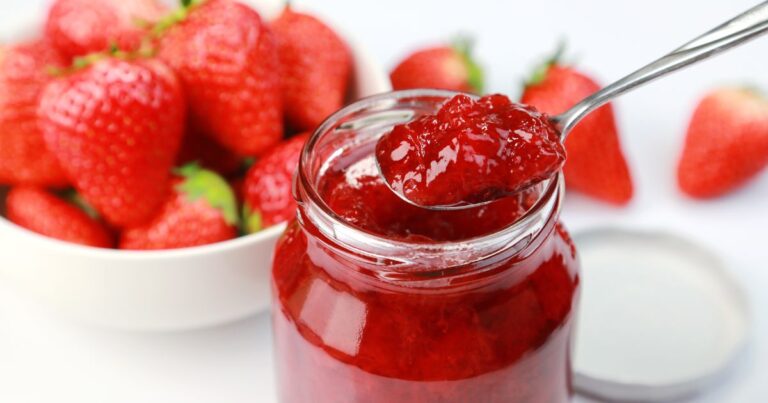Feathered Friends: Raising Chickens for Beginners
Table of Contents
Introduction to Raising Chickens for Beginners
Welcome, fellow homesteaders! Today, we’re going to talk about one of the most rewarding aspects of homesteading – raising chickens. If you’re a beginner, you might be wondering where to start. Well, you’re in luck! This guide, “Raising Chickens for Beginners,” will walk you through everything you need to know to get started on your poultry journey.
Choosing the Right Chicken for Raising Chickens for Beginners
When it comes to raising chickens, not all breeds are created equal. Some are better suited for beginners due to their hardiness, temperament, and egg-laying capabilities. Let’s take a closer look at three breeds that are often recommended for those starting out on their chicken-raising journey.
Rhode Island Red

The Rhode Island Red is a classic choice for beginners. These birds are known for their hardiness, making them less susceptible to disease and able to adapt to various climates. They’re also excellent layers, producing about 200 to 300 brown eggs per year. Rhode Island Reds have a calm and friendly temperament, making them easy to handle and a great addition to any backyard flock.
Sussex

The Sussex breed is another excellent choice for beginners. They’re known for their friendly and docile nature, making them a joy to raise. Sussex chickens are also prolific layers, providing a steady supply of large brown or tinted eggs. They’re quite hardy and can adapt to a variety of living conditions, making them a versatile choice for new chicken keepers.
Plymouth Rock

Plymouth Rock, also known as Barred Rock, is a popular breed among beginners due to their dual-purpose nature. They’re not only good layers, producing about 200 brown eggs per year, but they also grow to a good size for meat production. Plymouth Rocks are known for their docile and friendly nature, making them easy to handle and a great choice for families with children.
Choosing the right breed is an important first step. By selecting a breed that is known for its hardiness, friendly nature, and strong egg-laying capabilities, you’ll set yourself up for success in raising chickens for beginners.
Setting Up Your Chicken Coop
Your chickens will need a place to call home – a chicken coop. This is where they’ll sleep, lay eggs, and take shelter from the elements. When setting up your chicken coop, consider factors like size, ventilation, and protection from predators. A well-designed chicken coop will make your chicken-raising experience much more enjoyable and less stressful.

Size Matters
When it comes to the size of your chicken coop, you’ll need about 2-3 square feet per chicken inside the coop. This ensures that each chicken has enough space to move around comfortably. Overcrowding can lead to stress, disease, and lower egg production. Remember, happy chickens are productive chickens!
Ventilation is Key
Good ventilation is crucial for a healthy chicken coop. Chickens generate a lot of moisture and ammonia, which can build up in a poorly ventilated coop and lead to respiratory issues. Make sure your coop has enough openings to allow fresh air in but also consider the local climate. You don’t want your chickens to be too cold in the winter!
Protection from Predators
Chickens are a tasty treat for many predators, including foxes, raccoons, and even neighborhood dogs. Your chicken coop should be a safe haven for your feathered friends. Make sure it’s sturdy, with a door that can be securely closed. Consider adding a wire mesh around the coop and burying it a few inches into the ground to prevent predators from digging their way in.

Setting up your chicken coop is one of the first and most important steps in your chicken-raising journey. Take the time to plan and build a coop that will keep your chickens safe, comfortable, and happy. Remember, a well-planned coop will make your life easier and your chickens’ lives better.
Feeding Your Backyard Chickens
Chickens aren’t too picky when it comes to food, but they do need a balanced diet to stay healthy and productive. Commercially available chicken feed is designed to provide all the nutrients your chickens need. In addition to feed, chickens love kitchen scraps and will happily peck away at fruit and vegetable peelings, grains, and other leftovers.

Balanced Diet is Key
While chickens are omnivores and can eat a wide variety of foods, it’s important to ensure they’re getting a balanced diet. Commercial chicken feed is formulated to provide all the necessary nutrients, including protein, carbohydrates, fats, vitamins, and minerals.
Kitchen Scraps and Treats
In addition to their regular feed, chickens love kitchen scraps. They’ll happily peck away at fruit and vegetable peelings, leftover grains, and even cooked meats. However, not all kitchen scraps are safe for chickens. Avoid giving them anything salty, processed foods, or anything containing caffeine or alcohol.
Grit and Oyster Shells
Chickens need grit to help digest their food. If your chickens have access to the outdoors, they’ll likely pick up enough small rocks and pebbles on their own. If not, you’ll need to provide grit. Oyster shells are also important, especially for laying hens, as they provide the necessary calcium to produce strong eggshells.

Feeding your backyard chickens doesn’t have to be complicated. With a balanced diet, some kitchen scraps, and plenty of clean water, your feathered friends will be happy, healthy, and productive.
Chicken Health and Care
Keeping your chickens healthy is crucial. Regularly check your chickens for signs of illness, such as changes in their behavior, appearance, or egg production. Common chicken health issues include parasites, respiratory diseases, and egg-laying issues. If you notice anything unusual, it’s best to consult with a vet or experienced chicken keeper.
Regular Health Checks
Regular health checks are an essential part of chicken care. Look for changes in their behavior, such as lethargy, loss of appetite, or unusual aggression. Physical signs of illness can include changes in their feathers, eyes, beak, and feet. Also, monitor their egg production, as a sudden drop can indicate a health problem.
Common Health Issues
Chickens can suffer from a variety of health issues. Parasites, such as mites and lice, can cause discomfort and health problems if not treated. Respiratory diseases are also common and can be caused by bacteria, viruses, or fungi. Egg-laying issues, such as egg binding or soft-shelled eggs, can also occur, particularly in high-production breeds.
When to Consult a Vet
If you notice any signs of illness, it’s best to consult with a vet or an experienced chicken keeper. While some issues can be treated at home, others require professional care. Remember, it’s always better to be safe than sorry when it comes to the health of your feathered friends.
Caring for your chickens’ health doesn’t have to be complicated. With regular checks, a good understanding of common health issues, and a willingness to seek help when needed, you can ensure your chickens stay happy and healthy.
Egg-Laying Chickens
One of the main reasons people raise chickens is for the eggs. Most hens will start laying eggs when they’re about 5-6 months old. The frequency of egg-laying varies by breed, age, and time of year. To encourage regular egg-laying, make sure your hens have a comfortable, private place to lay their eggs.

When it comes to egg-laying, different breeds have different capabilities. Some breeds, like the White Leghorn, are prolific layers and can produce up to 300 eggs per year. Others, like the Ameraucana, lay fewer eggs but are known for their beautiful blue eggs.
It’s also important to note that egg production can be influenced by factors such as diet, stress, and daylight hours. Chickens need a certain amount of daylight each day to lay eggs, so during the shorter days of winter, you may notice a decrease in egg production.
Providing a balanced diet is crucial for egg production. Laying hens need a high-protein diet to produce eggs. You can provide this through a good quality layer feed, which is specifically formulated for laying hens. Supplementing their diet with calcium, such as crushed oyster shells, can help ensure strong eggshells.
Lastly, keep in mind that egg-laying is a taxing process for hens, and their production will naturally slow down as they age. After about 2-3 years, you’ll likely notice a significant decrease in egg production. But even older hens can continue to provide valuable contributions to your homestead, including pest control, composting, and simply as pets.
Raising chickens for eggs can be a rewarding experience. Not only do you get the benefit of fresh, nutritious eggs, but you also have the satisfaction of knowing exactly where your food comes from. Plus, there’s nothing quite like the thrill of finding a nest full of freshly laid eggs in the morning!
Chicken Farming Basics
Raising chickens for beginners is a commitment. They require daily care – feeding, watering, and checking their health. You’ll also need to clean the coop regularly. But don’t worry – while it might sound like a lot of work, the routine is quite simple once you get the hang of it. Plus, the rewards – fresh eggs, chicken manure for your garden, and the joy of watching your flock interact are well worth it.

Daily Care
Chickens need to be fed and watered every day. They should have constant access to clean, fresh water. Their feed should be topped up daily, and any leftover scraps should be removed to prevent attracting pests.
Health Checks
It’s important to keep an eye on your chickens’ health. Check them daily for any signs of illness or injury. Look for changes in their behavior, such as lethargy or loss of appetite, changes in their appearance, such as ruffled feathers or a dull comb, and changes in their egg production.
Cleaning the Coop
The chicken coop should be cleaned regularly to prevent the build-up of droppings and to keep the chickens healthy. How often you need to clean the coop will depend on the size of the coop and the number of chickens, but as a general rule, you should aim to clean the coop thoroughly at least once a week.
Enjoying the Rewards
Despite the work involved, raising chickens is incredibly rewarding. There’s nothing quite like collecting fresh eggs from your own backyard, and chicken manure makes excellent fertilizer for your garden. Plus, chickens are entertaining to watch and can be quite affectionate, providing plenty of joy and companionship.
Raising chickens for beginners is a journey, and like any journey, it’s not always smooth sailing. But with a bit of effort and a lot of love, you’ll soon find that the rewards of raising chickens far outweigh the challenges.
Remember, every chicken keeper started as a beginner, and every chicken keeper learns something new every day. So don’t be afraid to get started. Your feathered friends are waiting for you!
The Benefits of Chicken Manure in Composting
Chicken manure is a fantastic addition to your compost pile. According to a study, adding chicken manure to your compost can accelerate the composting process and increase the fermentation temperature, inhibiting the growth of certain bacteria. Another study found that the use of nitrogen-retaining microbial agents during chicken manure composting significantly reduced nitrogen loss, making the compost even more beneficial for your garden.
Chicken manure is rich in nitrogen, a nutrient that is essential for plant growth. When added to compost, it helps to create a rich, fertile soil that is perfect for growing vegetables and other plants. But it’s not just about the nitrogen. Chicken manure also contains other essential nutrients, including phosphorus and potassium, which are vital for plant health.
However, it’s important to note that chicken manure should be composted before it’s used in the garden. Fresh chicken manure is high in ammonia, which can burn plants and harm beneficial soil organisms. Composting the manure allows the ammonia to break down, making it safe for use in the garden.
To compost chicken manure, add it to your compost pile or bin along with a good mix of ‘brown’ materials, such as leaves, straw, or paper. These materials help to balance out the high nitrogen content of the manure and create a well-rounded compost.
Turn the compost pile regularly to help speed up the composting process and ensure that the manure is well mixed in. After a few months, you should have a rich, dark compost that is perfect for enriching your garden soil.

So, next time you’re cleaning out your chicken coop, don’t just throw away the manure. Add it to your compost pile and let it work its magic. Your garden will thank you!
Conclusion on Raising Chickens for Beginners
Raising chickens for beginners might seem daunting at first, but with a little knowledge and preparation, you’ll be well on your way to having your own flock of feathered friends. Remember, every chicken keeper started somewhere, and every day brings new learning opportunities. So, why not give it a try? You might just find that raising chickens is one of the most rewarding experiences you’ll ever have.
This journey is a part of our broader exploration into Animal Husbandry, where we delve into various aspects of managing and caring for livestock. If you found this post helpful, you’re going to love our our latest post on Raising Goats on Your Homestead.
This post is part of our Animal Husbandry for Homesteaders series.
Frequently Asked Questions
What is the best breed of chicken for beginners?
The best breed of chicken for beginners often depends on what you’re looking for. If you’re interested in egg production, consider breeds like the Rhode Island Red or the Sussex, which are known for their consistent laying. If you’re more interested in a pet, the Silkie breed is known for its friendly and calm demeanor.
How much space do I need for a chicken coop?
The amount of space needed for a chicken coop can vary depending on the breed and number of chickens. However, a general rule of thumb is to provide at least 2-3 square feet per chicken inside the coop, and about 8-10 square feet per chicken in an outside run.
What should I feed my chickens?
Chickens need a balanced diet to stay healthy and productive. Commercially available chicken feed is designed to provide all the nutrients they need. You can supplement this with kitchen scraps and garden waste. Avoid giving them anything salty, and remember that not all food scraps are safe for chickens.
How can I keep my chickens healthy?
Keeping your chickens healthy involves regular checks for signs of illness, maintaining a clean coop, providing a balanced diet, and ensuring they have plenty of fresh water. It’s also important to protect them from predators and severe weather.
Can I use chicken manure in my garden?
Yes, chicken manure is an excellent compost material and can provide valuable nutrients to your garden. However, it’s important to compost the manure first to kill any pathogens and allow it to break down into a form that’s beneficial for plants.
Disclaimer
This article is intended for informational purposes only. While every effort has been made to ensure the accuracy of the information, it is not meant to replace professional advice for specific personal circumstances or individual health concerns.
I hope you found this guide helpful! If you have any questions or want to share your chicken-raising experiences, feel free to leave a comment below. Happy homesteading!
Written by Alex Greenfield, a homesteader who traded skyscrapers for open skies and has been living the dream ever since. Alex shares his experiences and lessons learned from his homesteading journey on The Teaching Cooperative.
I'm Alex Greenfield, the main voice behind The Teaching Cooperative. I'm a former high school biology teacher turned full-time homesteader, and I've been living this self-sufficient lifestyle for over a decade now. I started this blog as a way to share my experiences and connect with others who are passionate about sustainable living. When I'm not tending to my chickens or harvesting veggies from my garden, you can find me in my kitchen, experimenting with homemade bread recipes. Join me as we explore the ins and outs of homesteading together!








